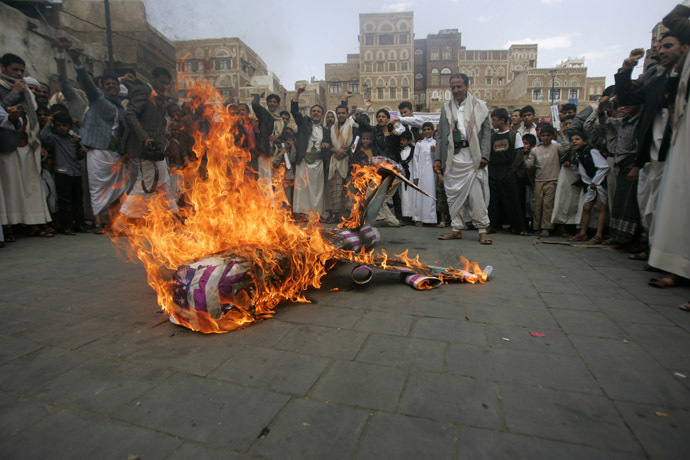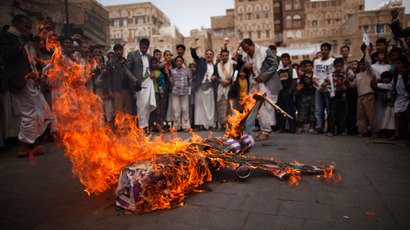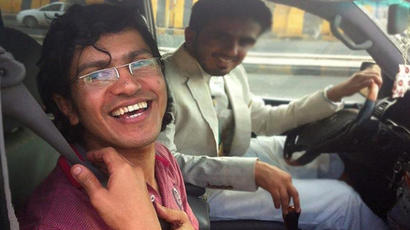Yemen wants US drones to fight Al-Qaeda
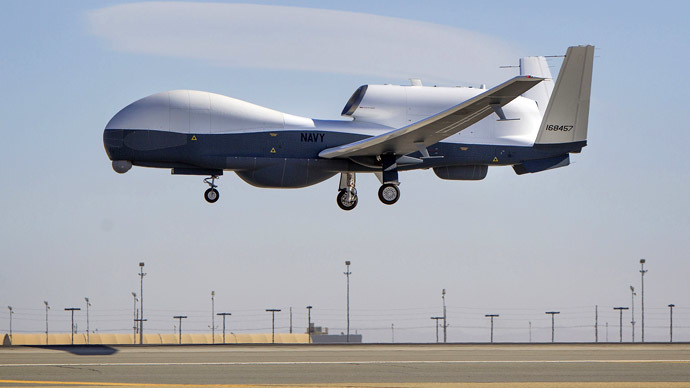
Yemen has announced it would like the US to supply it with drones to fight a more active Al-Qaeda, amid popular opposition to the president’s pro-Washington policies.
The state-owned Saba news agency also says President Abd-Rabbu
Mansour Hadi vowed to continue fighting the terrorist group until
they surrender, after delivering on Thursday the news that 40 of
its members have been terminated in recent counter-terrorism
operations.
Hadi’s predecessor Ali Abdullah Saleh was forced to step down
after 33 years of power during Yemen’s Arab Spring uprising of
2011, but the country has since become increasingly disillusioned
with Hadi’s policies as well, viewing them as a continuation of
Saleh’s agenda. He has also opened the door wide for Washington’s
controversial drone strikes, which have drastically increased
under President Barack Obama. This year alone Yemen took the
world lead with 21 instances.
He addressed police cadets on Thursday, saying that "the
drones that are conducting operations are part of the cooperation
between us and the United States," adding that Yemen did not
possess advanced enough technology to carry out such “precise
military missions.”
The Yemeni armed forces possess the capability of using drones,
so the president has “discussed the issue of helping [it]
acquire this technology with the US administration,” Saba
quoted him as saying.
Last year, Yemen seized multiple Al-Qaeda strongholds, flushing
out its members and allies with the help of the US. But the
terrorist cell has since been rejuvenated and is stepping up
attacks against government officials and buildings. Earlier this
month, Yemen prevented Al-Qaeda from seizing an eastern
provincial capital, as well as two oil and gas export terminals.
Also in August, Western states were forced to shut their
diplomatic missions in Sanaa after a phone conversation was
intercepted between the terrorist organization’s top leader,
Ayman Zawahiri, and the group's head in Yemen, Nasser Wuhayshi.
"We will pursue them until they seek peace, give up their
weapons and return to their senses as Yemeni citizens and not as
enemies of Yemen, and kick out the foreigners who carry out these
military attacks with them," Hadi said, defending
Washington’s drone strikes in the process.
However, at least 37 people were killed in drone strikes in Yemen
in the two first weeks of August alone, with locals claiming that
many of them were civilians.
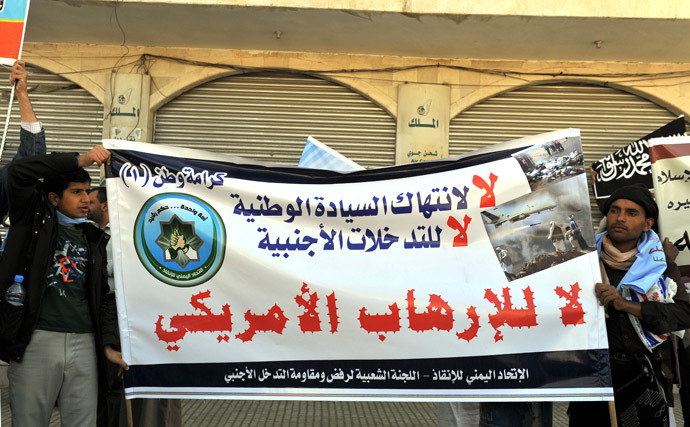
Since 2002, US drone strikes in Yemen have claimed the lives of
up to 860 people, according to the British Bureau of
Investigative Journalism. It could not be verified how many of
those killed were in fact Al-Qaeda militants.
In September 2012, one such strike in eastern Yemen killed 13
civilians, including women and children. Several US officials
were quoted as saying the drone apparently missed the intended
target, but no official apology or acknowledgement of the mistake
followed.
On August 19, thousands took to the streets of Yemen to protest
deadly US drone strikes which killed dozens of people over the
preceding two weeks, Iranian media reported. Critics say
Washington’s secretive policy is only pushing Yemenis to favor
radical groups.
Anti-US demonstrations held in several cities across Yemen over
the weekend gathered thousands of people, FARS news agency
reported.
In his Thursday address, the Yemeni president tried to tip the
balance in favor of drone use, but the fact remains that
Washington’s humanitarian support and military aid is indeed
crucial for Hadi. The country is still struggling with its weak
oil-dependent economy, rampant unemployment, and lacking security
forces. The US allocated $345 million to Yemen in 2012 and is
expected to give another $250 million in both 2013 and 2014.
One of the poorest countries in the Arab world lies next to the
world’s biggest oil exporter – Saudi Arabia. Restoring stability
to it is one of the international community’s primary
concerns.
